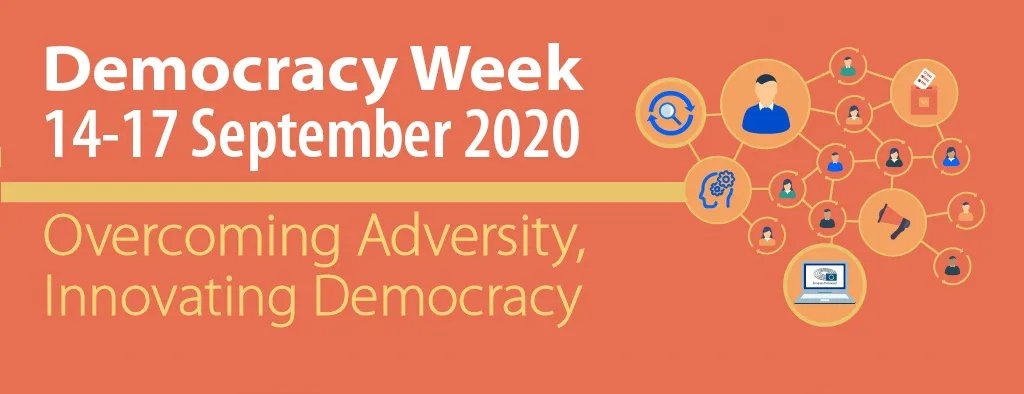In celebration of the International Day of Democracy: discussion on international responses to COVID-19 crisis

In celebration of the International Day of Democracy, the International Institute for Democracy and Electoral Assistance (International IDEA), the European Partnership for Democracy, the European Endowment for Democracy, the European Network of Political Foundations and Carnegie Europe co-hosted together with the European Parliament a four-day conference that consisted of a series of online events marked as "International Democracy Week – Overcoming Adversity, Innovating Democracy".
The seven events of International Democracy Week, from 14 to 17 September, featured more than 30 speakers, including high-level EU and UN representatives, prominent politicians, experts from international NGOs, local activists and academics. The conference constituted a platform where democracy actors from different regions in the world could meet and exchange lessons about coping with challenges related to the COVID-19 pandemic.
The global pandemic has highlighted the resilience of our democratic institutions, the universal desire for fundamental freedoms, and the necessity of multilateralism. Yet, the crisis has also shed light on the ease with which restrictions can be imposed on democratic checks and balances, civic participation, and human rights, and it has exposed challenges for cooperation in times of need.
Now more than ever, the international community needs to stand up for democracy.
Need for international cooperation to tackle challenges of the COVID-19 crisis.
The high-level conference held on 15 September, entitled "European and international responses to the COVID-19 crisis and its impact on democracy" was the high point of the week. In celebration of International Democracy Day, this discussion showcased visions of European and international leaders for the future of democracy support, in the post-pandemic era.
The session was opened by the Address of the President of European Parliament, David Sassoli who stressed the importance of democratic processes in times of crisis. He highlighted the need to involve citizens in decision-making and to efficiently respond to their needs. He added that new technologies are essential to ensuring this, for instance by facilitating remote proceedings of parliaments.
Věra Jourová, Vice-President of the European Commission, expressed her appreciation for champions of democracy and called for their support. She emphasized that democracy cannot be taken for granted. She underlined the danger of microtargeting techniques that are moving the discourse from public squares to digital basements. The EU is taking steps to make democracy more resilient by introducing its European Democracy Action Plan and the new rule of law mechanism.
Michelle Bachelet, UN High Commissioner for Human Rights, focused on the need for universal health coverage and social protection as the COVID-19 pandemic aggravated inequalities. She highlighted that people have a right to raise concerns and participate in shaping policies that will affect their lives. The public must trust national institutions and laws introduced by them, especially in such difficult times where limiting the spread of the virus relies in big part on people’s self-control.
Heidi Hautala, Vice-President of the European Parliament noted that civil society organizations are direct victims of the pandemic and need sufficient support and resources. The economic recovery must not cut into the funds previously dedicated to them. She explained that, although regimes that impose heavy restrictions claim to have slowed the spread of the virus, in the long-term this is a false narrative. Populations are affected by the crisis unequally and the EU has a responsibility to protect the most vulnerable, also beyond its borders, for instance through possible Human Rights Due Diligence Legislation or the European Green Deal.
Kevin Casas-Zamora, Secretary-General of International IDEA, called for closer cooperation between the European and international democratic community to support national governments in coping with the COVID-19 challenges. There are clear signs that engaging in evidence-based decision-making, seeking consensus with political opponents, protecting the free flow of information and nurturing open engagement between government and societies are essential in mitigating risks related to the pandemic.
More information on other events of the International Democracy Week – Overcoming Adversity, Innovating Democracy can be found in the final report.




